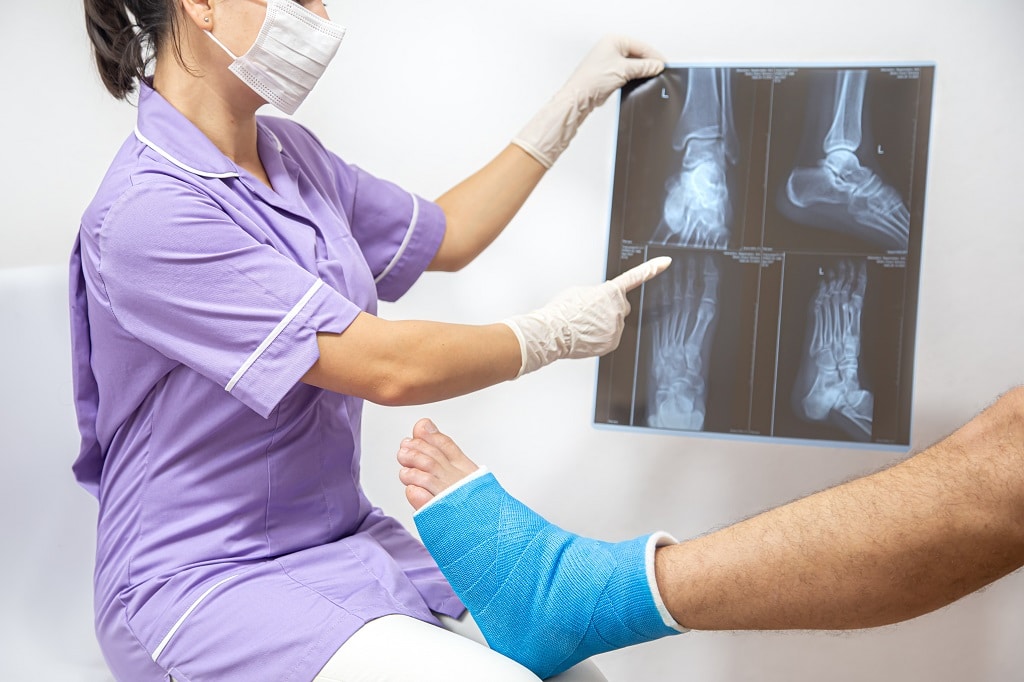
Introduction
Fractures, often referred to as broken bones, are a common injury that can happen to anyone at any age. These injuries can result from various causes, such as auto accidents, sports injuries, or even medical conditions like osteoporosis. While fractures can be painful and disruptive, the good news is that they are highly treatable, and the healing process has been significantly enhanced through modern medical advances. In this comprehensive guide, we will explore the different types of fractures and the various treatment options available, with a focus on the services provided by Fracture Care Miami in Florida, commonly known as OrthoMiami.
Understanding the Fracture Healing Process
Before delving into the specific types of fractures and their treatments, it’s crucial to understand the fundamental principles of the fracture healing process. The human body possesses an incredible ability to repair and regenerate damaged bones. The process of bone healing primarily involves the following stages:
- Inflammatory Stage: Immediately after a fracture, the body initiates an inflammatory response to stabilize the injury site. Inflammation is a natural defense mechanism that promotes healing by attracting immune cells to the area.
- Reparative Stage: During this phase, the body starts producing a soft callus that bridges the fractured ends of the bone. Eventually, this soft callus will harden into a bony callus, helping to stabilize the fracture.
- Remodeling Stage: Over time, the bony callus undergoes a process of remodeling, where it is reshaped and strengthened. This stage may take several months to complete.
Orthopedic Surgery for Fractures
In some cases, a fracture may be severe, unstable, or complicated, requiring surgical intervention. Orthopedic surgery is a specialized field of medicine that focuses on the treatment of musculoskeletal disorders, including fractures. Surgical options for treating fractures vary depending on the location, type, and severity of the fracture. Common surgical procedures include:
- Open Reduction and Internal Fixation (ORIF): This surgical technique involves making an incision to access the fractured bone, realigning the bone fragments, and then using screws, plates, or rods to stabilize the fracture. ORIF is often used for complex fractures that cannot be treated effectively with casting or splinting.
- External Fixation: External fixation is a procedure where pins or wires are inserted into the bones above and below the fracture site, which is then connected to an external frame. This technique is often used for severe fractures, as it provides stability while allowing for swelling and wound care.
- Intramedullary Nailing: In this procedure, a nail or rod is inserted into the hollow center of the fractured bone. This method is frequently used for long bones like the femur or tibia. It offers excellent stability and promotes quicker healing.
- Joint Fracture Repair: For fractures involving joints, such as the wrist or ankle, specialized procedures may be necessary to restore joint stability and function. These surgeries are tailored to the specific joint and the type of fracture involved.
Fracture Rehabilitation
Regardless of whether a fracture is treated surgically or non-surgically, rehabilitation plays a crucial role in the healing process. Fracture rehabilitation aims to restore normal function and strength to the injured limb. The rehabilitation process may include:
- Physical Therapy: Physical therapists work with patients to improve mobility, strength, and flexibility in the affected area. They may use various exercises and techniques to expedite the healing process.
- Occupational Therapy: In cases where fractures affect hand, wrist, or upper limb function, occupational therapists help patients regain fine motor skills and perform daily activities.
- Weight-Bearing Progression: Patients are often advised on when and how to gradually resume weight-bearing activities on the injured limb. This progression is closely monitored to prevent complications.
- Pain Management: Pain management techniques, such as medications and therapeutic modalities, are essential to ensure patient comfort throughout the rehabilitation process.
Fracture Care Miami (OrthoMiami) – A Leader in Fracture Care Treatment, FL
OrthoMiami, is a prominent orthopedic clinic in Miami, Florida, specializing in the diagnosis and treatment of various orthopedic conditions, including fractures. Their team of experienced orthopedic surgeons and healthcare professionals is dedicated to providing high-quality fracture care treatment to patients in the Miami area.
OrthoMiami offers a wide range of services related to fractures, including:
- Expert Diagnosis: OrthoMiami employs state-of-the-art diagnostic tools and techniques to accurately assess the type and severity of fractures. This precision is essential for tailoring treatment plans to each patient’s unique needs.
- Non-Surgical Fracture Management: For less severe fractures, OrthoMiami provides non-surgical treatment options, such as casting, splinting, and immobilization, to promote optimal healing.
- Orthopedic Surgery: In cases where surgery is necessary, OrthoMiami’s orthopedic surgeons have extensive experience in performing advanced procedures, such as ORIF and intramedullary nailing, to ensure the best possible outcomes.
- Comprehensive Rehabilitation: The clinic offers comprehensive rehabilitation services to aid in the recovery process, providing patients with access to physical therapists and occupational therapists who work closely with them to regain function and strength.
- Patient-Centered Care: OrthoMiami is committed to delivering patient-centered care, with a focus on individualized treatment plans and open communication to ensure patients are informed and comfortable throughout their journey to recovery.
Fracture Care and Treatment at OrthoMiami
Fractures are a common but treatable injury. Understanding the fracture healing process, the different types of fractures, and the available treatment options, including orthopedic surgery and rehabilitation, is essential for both patients and healthcare providers. Fracture Care Miami, also known as OrthoMiami, is a trusted resource in Miami, Florida, for those in need of fracture care treatment.
Our commitment to delivering personalized care and our team of experienced orthopedic professionals make them a go-to destination for fracture diagnosis and treatment, ensuring that patients receive the care they need to make a full recovery and return to their active lives. Remember, early diagnosis and prompt treatment can significantly improve the chances of a successful recovery from a fracture. Contact us or call us at (305) 596-2828 to learn more about our services and how we can assist you on your journey to recovery.